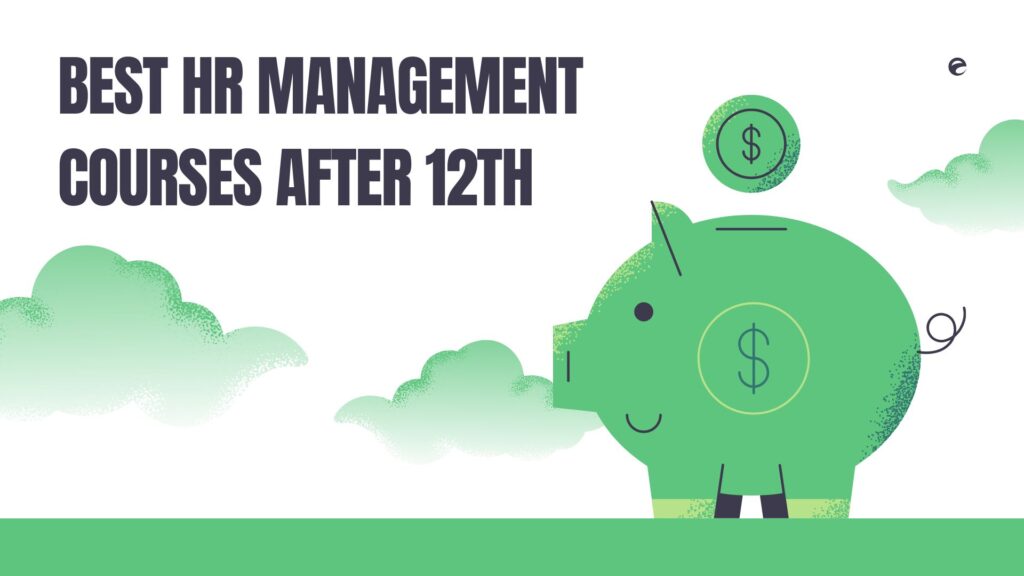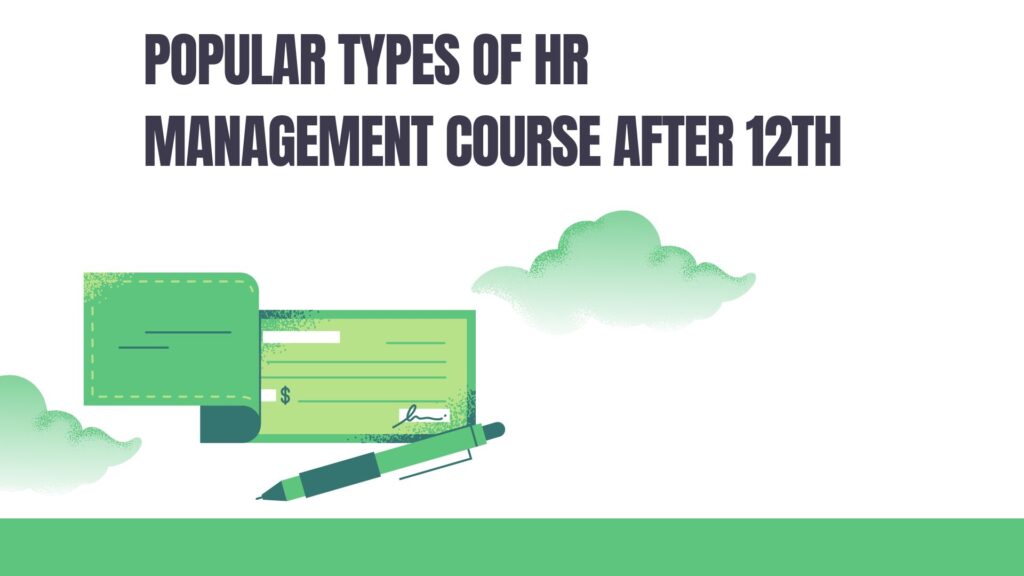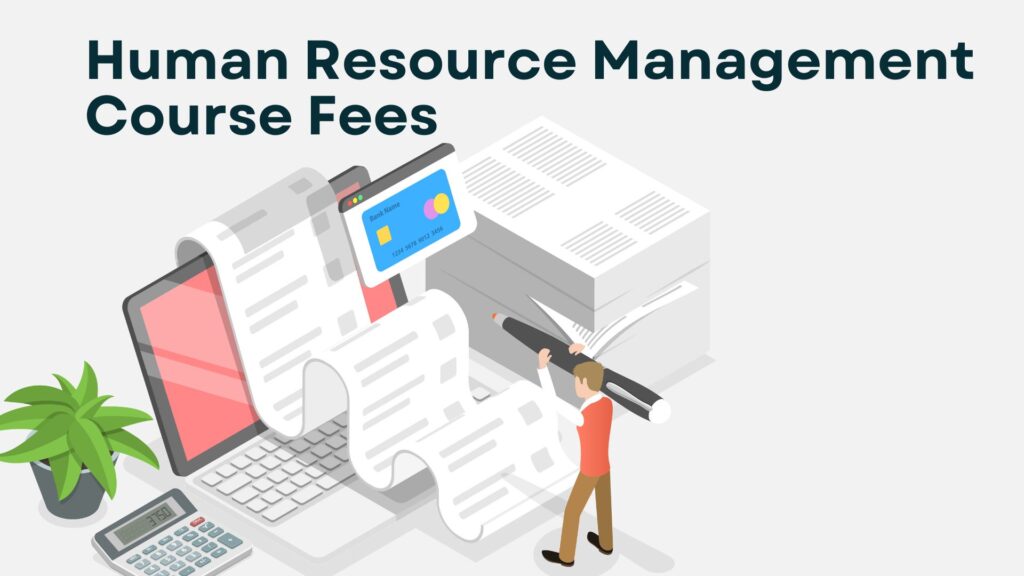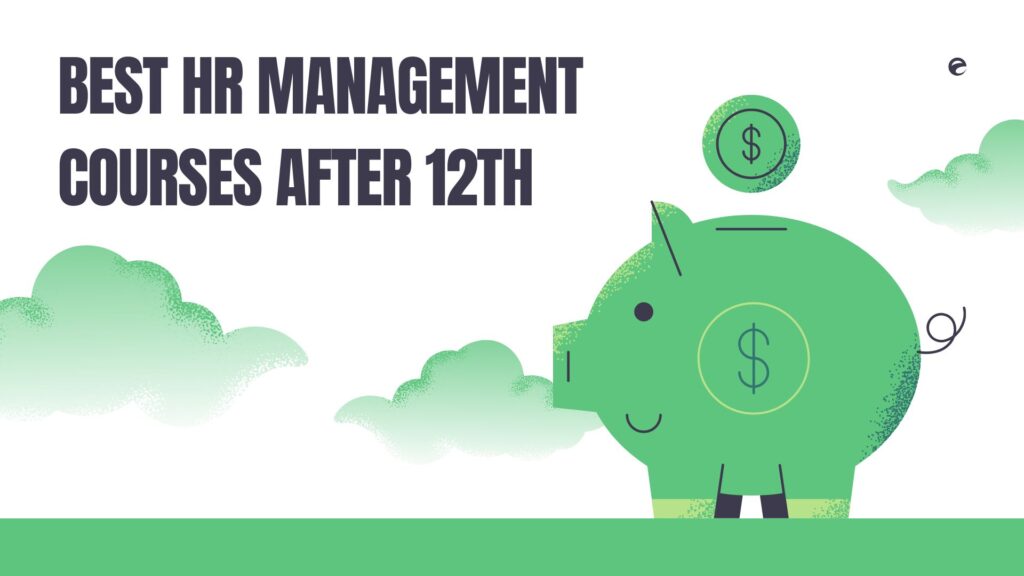Best HR Management Courses After 12th

Introduction to HR Management Courses After 12th
In today’s competitive job market, choosing the right career path early is crucial, and opting for an HR management course after 12th offers a powerful advantage. This field not only provides professional growth but also ensures long-term career stability. Whether you’re from a commerce, arts, or science background, the doors to human resource management are wide open.
Students who complete an HR management course after 12th often find themselves ahead of their peers when it comes to job readiness. As businesses grow, the demand for efficient HR professionals grows in parallel. The foundation built by an HR management course after 12th empowers students with critical thinking, communication, and organizational skills necessary for today’s workforce.
What is Human Resource Management?
Human Resource Management (HRM) is the process of hiring, training, compensating, and managing people in an organization. An HR management course after 12th teaches the core concepts of this process. Students learn to deal with real-life workforce issues, workplace ethics, conflict resolution, and employee engagement.
One of the primary roles of HR managers is to ensure that companies retain top talent and comply with labor laws. Completing an HR management course after 12th helps students develop insights into such responsibilities early in their academic journey.
Popular Types of HR Management Course After 12th

1. Diploma in Human Resource Management
Duration: 1 year
Eligibility: 12th pass from a recognized board
Focus Areas: Recruitment, employee training, labor laws, compensation
Why choose it?
This HR management course after 12th is a short-term, skill-oriented program that makes you job-ready quickly.
2. Bachelor of Business Administration (BBA) in HR Management
Duration: 3 years
Eligibility: 10+2 with minimum 50% marks
Focus Areas: Business communication, HR analytics, labor law, HR planning
Why choose it?
A BBA with a specialization in HR is one of the most popular options for students looking for a comprehensive HR management course after 12th. It covers both general business principles and HR strategies.
3. Certificate Courses in HR Management
Duration: 3 to 6 months
Eligibility: 10+2 or equivalent
Focus Areas: HR operations, payroll management, soft skills
Why choose it?
Perfect for students seeking flexible and quick knowledge. Many online platforms offer certified HR management course after 12th options.
4. Integrated MBA in HR (BBA+MBA)
Duration: 5 years
Eligibility: 10+2 with qualifying entrance exam
Focus Areas: Business law, talent management, strategic HRM
Why choose it?
This integrated HR management course after 12th saves a year and provides a complete academic route from undergraduate to postgraduate level in HR.
5. BA in Human Resource Management
Duration: 3 years
Eligibility: 12th pass in any stream
Focus Areas: Organizational behavior, HR strategy, leadership skills
Why choose it?
A great choice for students from arts backgrounds, this HR management course after 12th focuses on theory and human behavior in organizational settings.
6. Diploma in Office Administration & HR
Duration: 1 year
Eligibility: 12th pass from any stream
Focus Areas: Office operations, human resources, documentation, and employee coordination
Why choose it?
This HR management course after 12th blends administrative and HR skills, ideal for entry-level roles in small and medium enterprises.
7. Advanced Diploma in Human Resource Management
Duration: 18 months
Eligibility: 12th pass or equivalent
Focus Areas: Strategic HR planning, performance evaluation, HR leadership
Why choose it?
A step above the basic diploma, it’s ideal for students seeking mid-level HR roles without a full degree.
8. Vocational Training in HR & Payroll
Duration: 6 months to 1 year
Eligibility: 10+2 in any stream
Focus Areas: Payroll software, employee records, statutory compliance
Why choose it?
This hands-on HR management course after 12th trains students for immediate employment in payroll or HR back-office roles.
9. BMS (Bachelor of Management Studies) with HR Specialization
Duration: 3 years
Eligibility: 12th pass with minimum 50%
Focus Areas: People management, organizational strategy, leadership
Why choose it?
It combines general management studies with focused HR training in the final year, offering balanced exposure.
10. Online Certification in Talent Acquisition
Duration: 3–6 months
Eligibility: 12th pass
Focus Areas: Sourcing, interviewing, onboarding, recruitment analytics
Why choose it?
A modern, digital HR management course after 12th tailored for the booming recruitment sector.
Career Opportunities After HR Management Course After 12th

HR Assistant / HR Executive
Support HR managers in day-to-day operations such as recruitment, documentation, employee data entry, and coordination.Recruitment Coordinator
Handle job postings, schedule interviews, and communicate with candidates during the hiring process.Payroll Executive
Manage employee salary processing, tax calculations, PF/ESI contributions, and monthly payroll reports.Training & Development Assistant
Help in organizing training programs, employee onboarding sessions, and learning workshops.HR Generalist (Entry-Level)
Take care of multiple HR functions including employee engagement, grievance handling, and compliance support.Office Administrator (with HR focus)
Perform administrative tasks with a specialization in HR paperwork, attendance tracking, and record management.HR Operations Associate
Handle backend HR tasks such as database management, employee letters, and HR software usage.Talent Acquisition Executive (Junior Level)
Focus on hiring needs, candidate sourcing, and coordinating with staffing agencies or job portals.
Basic Eligibility Criteria:
Educational Qualification
Completion of 10+2 from a recognized board in any stream (Arts, Commerce, or Science).
Minimum Percentage Requirement
Most certificate and diploma courses have no minimum marks criteria.
For degree courses like BBA or BA in HR, colleges usually require 50–60% in 12th grade.
English Language Proficiency
Since most HR content is delivered in English, good communication skills and basic proficiency in English are necessary.
Entrance Exams (For Some Degrees)
Some universities may conduct entrance exams (e.g., CUET, IPU CET, SET) for BBA or BA programs in HR.
Age Limit
Generally, no upper age limit for certificate/diploma courses. For degree programs, candidates must be within 17–25 years (in most cases).
Meeting these requirements will help you start your journey toward a successful HR management course after 12th.
Salary Expectations After HR Management Course After 12th
Salaries in the HR field can vary depending on your qualification, skills, location, and type of company. Here’s what freshers can typically expect after completing an HR management course after 12th:
Entry-Level Salary Range (India)
| Qualification | Job Role | Average Monthly Salary |
|---|---|---|
| Certificate Course | HR Assistant / Admin | ₹10,000 – ₹15,000 |
| Diploma Course | HR Executive / Payroll Support | ₹12,000 – ₹20,000 |
| Bachelor’s Degree (BBA/BA) | HR Coordinator / Recruiter | ₹18,000 – ₹30,000 |
| Online International Certification | Talent Acquisition Associate / L&D Support | ₹15,000 – ₹25,000 |
| City | Average Starting Salary |
|---|---|
| Navi Mumbai / Mumbai | ₹18,000 – ₹30,000 |
| Pune | ₹15,000 – ₹25,000 |
| Delhi NCR | ₹16,000 – ₹28,000 |
| Bangalore | ₹20,000 – ₹32,000 |
| Hyderabad | ₹18,000 – ₹28,000 |
After 1–2 Years: ₹25,000 – ₹40,000/month
After 3–5 Years: ₹45,000 – ₹70,000/month
Post-MBA or Specialization: ₹80,000 – ₹1.5 Lakh/month+
Factors Affecting Salary
Type of course (certificate, diploma, or degree)
Communication & interpersonal skills
Knowledge of labor laws and payroll systems
Exposure to HR software (like SAP, Workday, or Zoho People)
Industry of employment (IT, banking, retail, etc.)
- A well-chosen HR management course after 12th can become a strong foundation for financial growth, career security, and long-term success.
Skills You Will Gain from an HR Management Course After 12th
An HR management course after 12th can help you build a strong foundation for a successful career in human resources and organizational management. Here are some of the key skills you will gain from such a course:
1. Recruitment and Talent Acquisition
You will learn how to:
Draft job descriptions
Conduct interviews
Screen resumes
Manage the end-to-end recruitment process
2. Communication Skills
HR professionals must communicate effectively. You’ll gain:
Verbal and written communication skills
Listening and conflict resolution abilities
Public speaking confidence
3. Employee Relations and Conflict Management
This skill includes:
Handling workplace disputes
Building employee engagement programs
Maintaining a positive work culture
4. Payroll and Compensation Management
You’ll be introduced to:
Salary structuring
Payroll processing tools
Statutory compliance (like PF, ESI, TDS)
5. HR Software and Tools
Modern HR relies on digital tools. You will gain knowledge of:
HRMS (Human Resource Management Systems)
Excel for HR data analysis
Tools like SAP, Zoho People, or Workday
6. Training and Development
You will learn how to:
Conduct training needs analysis
Develop training modules
Evaluate effectiveness of employee development programs
7. Performance Management
Gain insights into:
Setting KPIs and goals
Conducting appraisals
Providing constructive feedback
Industries That Hire After HR Management Course After 12th
After completing an HR management course after 12th, you can find employment opportunities across a wide range of industries. Human Resource professionals are essential in nearly every sector because they manage talent, drive employee engagement, and ensure compliance. Here are the top industries that hire HR professionals after such a course:
1. Information Technology (IT) and Software
Roles: HR Executive, Recruitment Coordinator, HR Admin
Why: IT companies have large workforces and constantly need skilled HRs for hiring and employee management.
2. Banking and Financial Services
- Roles: HR Assistant, Payroll Executive
Why: Banks and finance firms rely on HRs to handle training, compliance, and workforce planning.
- 3. Retail and E-Commerce
- Roles: Store HR Executive, HR Recruiter
Why: High employee turnover in these sectors creates a continuous demand for HR professionals.
4. Manufacturing and Industrial Sector
- Roles: HR Generalist, Compliance Officer
Why: Factories and industrial units need HRs for labor management, compliance, and training.
- 5. Hospitality and Tourism
Roles: HR Trainee, HR Operations Coordinator
Why: Hotels and travel companies depend on HR teams to manage diverse and customer-facing staff.
- 6. Healthcare and Hospitals
Roles: HR Executive, Recruitment Assistant
Why: Hospitals require HR support for staffing, scheduling, and employee welfare.


